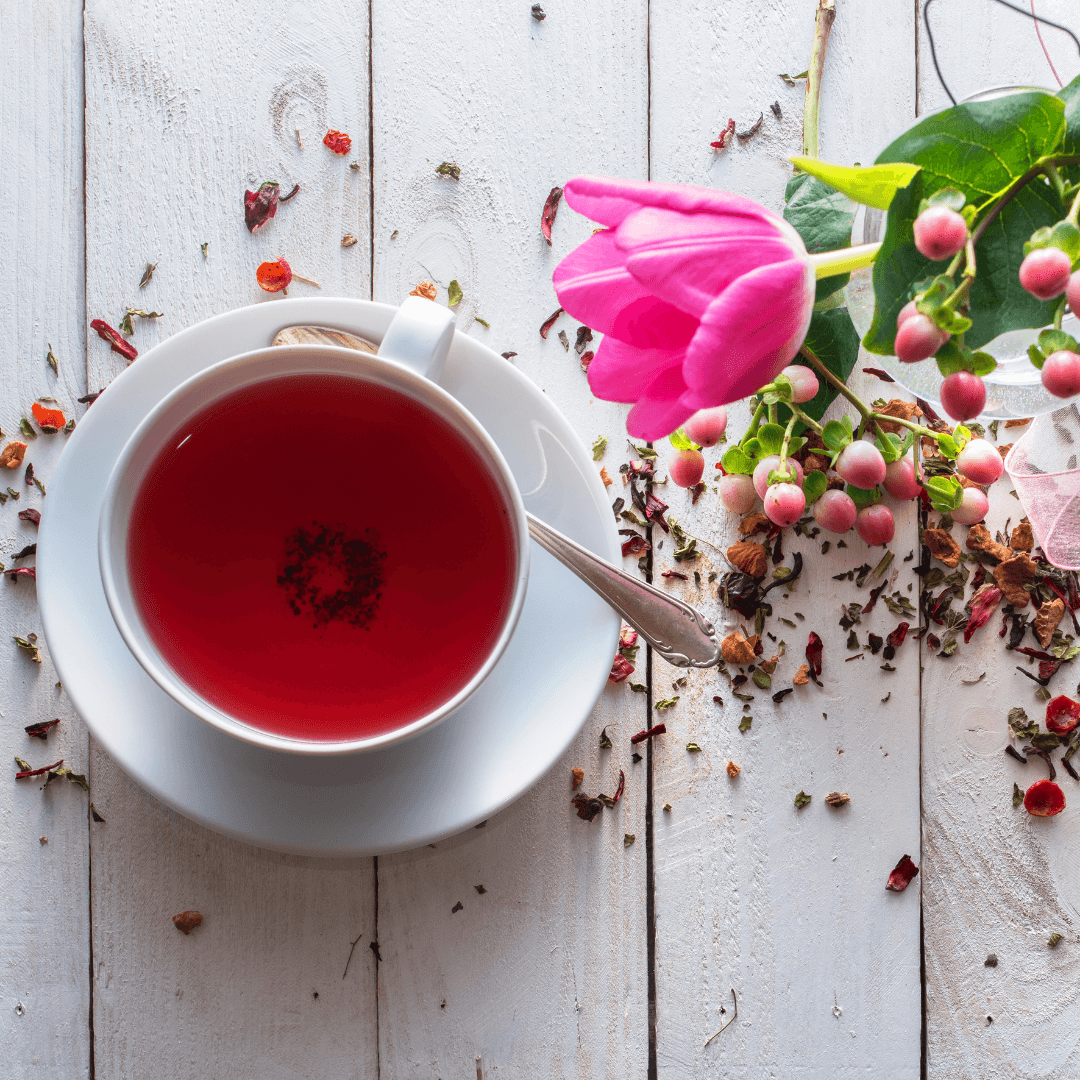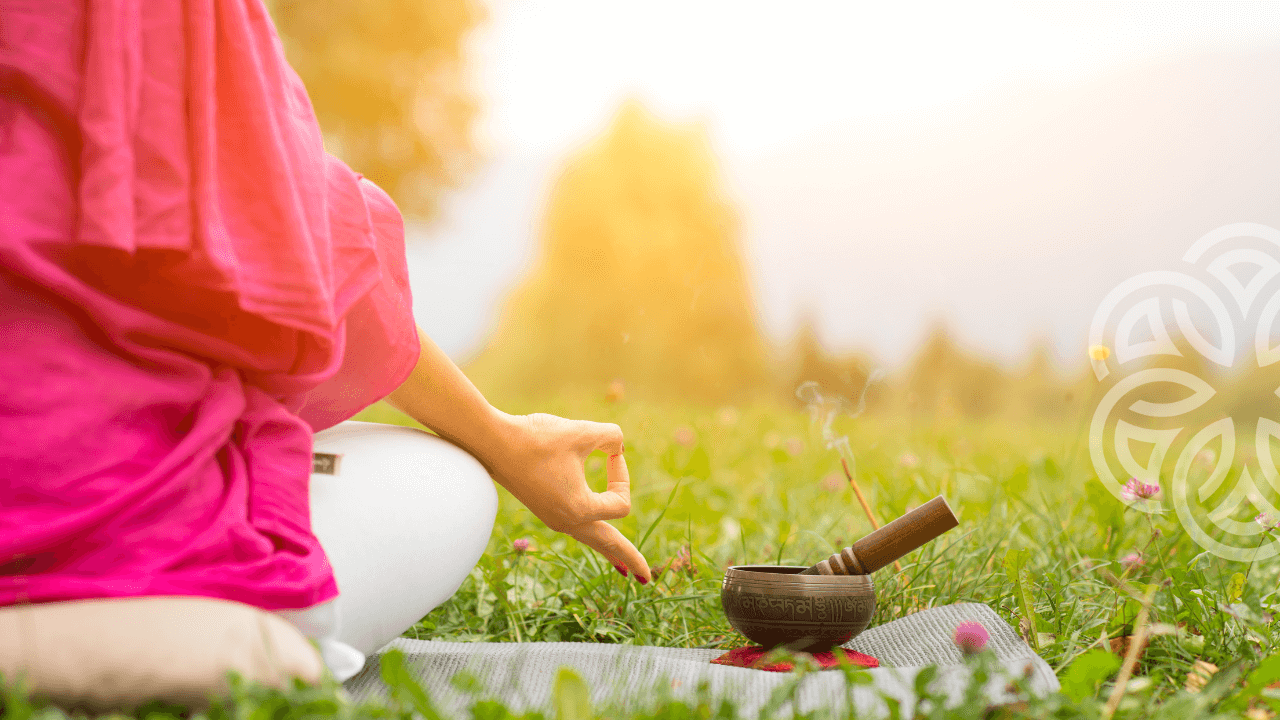Tea for Women's Hormones: How Sipping the Right Brew Can Support your health
Are you looking for a natural way to support your hormonal balance? Look no further than your tea cup! In this article, we'll explore how sipping the right brew can help women maintain hormonal equilibrium. Finding balance in our fast-paced lives can be challenging, especially when it comes to our hormones. Hormonal imbalances can lead to a host of issues, including mood swings, irregular cycles, and even fertility struggles. But fear not, because nature has provided us with a delicious solution: tea. Certain teas, such as green tea, rooibos, and and matcha tea, have been used for centuries to support women's hormonal health. These herbal infusions are rich in antioxidants and phytochemicals that can help regulate hormone levels and alleviate common symptoms. Whether you're experiencing premenstrual syndrome (PMS), menopause symptoms, or simply want to promote overall wellness, incorporating the right tea into your routine can make a world of difference. So, put on the kettle and join us on a journey of discovering the power of tea for women's hormonal balance. In this article, we'll delve deeper into the benefits of specific teas, how they work, and tips for incorporating them into your daily routine. Get ready to sip your way to hormonal harmony! Understanding hormonal balance in women
Hormonal balance plays a crucial role in women's overall health and well-being. Hormones act as chemical messengers in the body, regulating various bodily functions, including reproduction, metabolism, and mood. When these hormones are imbalanced, it can have a significant impact on women's health. The endocrine system, responsible for producing and regulating hormones, is complex. It involves various glands, such as the hypothalamus, pituitary gland, thyroid, and ovaries. When any of these glands fail to function optimally, it can disrupt the delicate balance of hormones in the body. Common hormonal imbalances in women include estrogen dominance, low progesterone levels, and fluctuations in cortisol, the stress hormone. These imbalances can result from factors such as stress, poor diet, lack of exercise, and environmental toxins.
The impact of hormonal imbalances on women's health
Hormonal imbalances can have a profound impact on women's health, both physically and emotionally. Irregular menstrual cycles, heavy or painful periods, and fertility issues are common signs of hormonal imbalances. Additionally, women may experience mood swings, anxiety, fatigue, and sleep disturbances. Imbalances in estrogen and progesterone, two key female hormones, can lead to a range of symptoms. Estrogen dominance, for example, can cause breast tenderness, weight gain, and mood swings. Low progesterone levels may result in irregular periods, difficulty conceiving, and increased risk of miscarriage. Chronic hormonal imbalances can also increase the risk of developing conditions such as polycystic ovary syndrome (PCOS), endometriosis, and thyroid disorders. These conditions can have long-term implications for a woman's reproductive health and overall quality of life. The role of tea in supporting hormonal balance
Tea, particularly herbal infusions, has been used for centuries as a natural remedy for various health concerns, including hormonal imbalances. Many herbal teas contain compounds like Tulsi, Shatavari and fennel that can help regulate hormone levels, reduce inflammation, and support overall well-being. One of the key benefits of tea for hormonal balance is its rich antioxidant content. Antioxidants help neutralize harmful free radicals in the body, which can contribute to hormone disruption. By reducing oxidative stress, tea can help promote a healthier hormonal environment. Furthermore, certain teas contain phytochemicals, plant compounds that mimic the effects of hormones in the body. For example, red raspberry leaf tea is known to have a toning effect on the uterus, making it beneficial for menstrual health and pregnancy.
Types Of Tea for women's hormones
When it comes to choosing the right tea for hormonal balance, it's essential to consider your specific needs and symptoms. Different teas offer unique benefits and can target specific hormonal issues.
Here are some teas that are particularly beneficial for women's hormones:
- Green tea: Green tea contains compounds such as catechins and flavonoids, which have been studied for their potential effects on hormone regulation and overall health. Green tea contains phytoestrogens, which are plant compounds that have a similar structure to human estrogen. These phytoestrogens may help modulate estrogen levels in the body, potentially promoting hormone balance. You can check our Hormonal Rebalance Tea with a green tea base.
- Rooibos tea: While it may not directly regulate hormones like some other herbs, rooibos tea offers various compounds and properties that can contribute to overall hormonal health and balance. Rooibos tea's anti-inflammatory properties may help reduce inflammation in the body, which can contribute to hormone imbalance. Check out our Deep Sleep Tea with a Rooibos based and potent antioxidants.
 Matcha tea: Matcha is rich in catechins, particularly epigallocatechin gallate (EGCG), which are powerful antioxidants. These antioxidants may help reduce oxidative stress and inflammation, contributing to overall hormonal balance. Check out our Metabolism Boost Tea created with a matcha based and powerful antioxidants and ayurveda herbs.
Matcha tea: Matcha is rich in catechins, particularly epigallocatechin gallate (EGCG), which are powerful antioxidants. These antioxidants may help reduce oxidative stress and inflammation, contributing to overall hormonal balance. Check out our Metabolism Boost Tea created with a matcha based and powerful antioxidants and ayurveda herbs.- Dong Quai tea: Dong Quai, also known as "female ginseng," is a Chinese herb often used to support women's hormonal health. It is believed to help regulate estrogen levels and promote a healthy menstrual cycle. However, it is important to consult with a healthcare professional before using Dong Quai tea, as it can interact with certain medications.
Herbal teas ayurvedic ingredients for specific hormonal issues.
In addition to the teas mentioned above, there are several other herbal ayurvedic ingredients that can target specific hormonal issues. Here are a few examples:
- Fennel seeds: Support bowel health and aid digestion. It is known to be a significant source of antioxidants.
- Tulsi: Is an adaptogen herb that helps to balance hormone levels, specifically by decreasing cortisol. Supports the adrenal system, which during menopause, fluctuates hormonally.
- Shatavari: Powerful, adaptogenic herb that supports women through all stages of the female reproductive cycle.
- Fenugreek: It is highly regarded for its ability to normalize blood glucose.
- Licorice root tea: Licorice root tea has adaptogenic properties, meaning it can help the body adapt to stress and promote hormonal balance. It may be beneficial for women with adrenal fatigue or cortisol imbalances.
Incorporating tea into your daily routine
To reap the benefits of tea for hormonal balance, it's important to incorporate it into your daily routine. Download here our Tea Time=Me Time Ebook.
Here are some tips for making tea a regular part of your life:
- Start your day with a cup of herbal tea: Instead of reaching for a caffeinated beverage, opt for a herbal tea such as chamomile or peppermint to kickstart your day. These teas can provide a gentle energy boost without the jittery effects of caffeine.
- Have a midday tea break: Take a break from your busy schedule and enjoy a soothing cup of herbal tea in the afternoon. This can help reduce stress levels and promote relaxation.
- Create a bedtime tea ritual: End your day on a calming note by sipping on a warm cup of herbal tea before bed. Chamomile or lavender tea can help promote better sleep and prepare your body for restorative rest.
- Experiment with tea blends: Don't be afraid to get creative and experiment with different tea blends. Mix and match herbs and flavors to suit your taste preferences and target specific hormonal issues.
Other lifestyle factors that support hormonal balance
While tea can be a powerful tool in promoting hormonal balance, it's important to address other lifestyle factors that can contribute to imbalances. Here are a few tips to support hormonal health:
- Eat a balanced diet: Include a variety of nutrient-dense foods in your diet, such as fruits, vegetables, whole grains, lean proteins, and healthy fats. Avoid processed foods, sugary snacks, and excessive caffeine, as these can disrupt hormone levels.
- Exercise regularly: Engaging in regular physical activity can help regulate hormones, reduce stress, and support overall well-being. Aim for at least 30 minutes of moderate-intensity exercise most days of the week.
- Manage stress: Chronic stress can wreak havoc on hormonal balance. Incorporate stress-reducing activities into your daily routine, such as meditation, yoga, deep breathing exercises, or spending time in nature.
- Get enough sleep: Prioritize quality sleep to allow your body to restore and regulate hormone levels. Aim for 7-9 hours of uninterrupted sleep each night.
- Minimize exposure to environmental toxins: Toxins found in everyday products, such as plastics, cleaning supplies, and personal care items, can disrupt hormone function. Opt for natural and organic alternatives whenever possible. Consulting with a healthcare professional
While tea can be a wonderful addition to your routine, it's important to remember that herbal remedies are not a substitute for professional medical advice. If you're experiencing persistent hormonal imbalances or have any concerns about your health, it's crucial to consult with a healthcare professional. They can help identify the underlying causes of your hormonal issues and develop a personalized treatment plan that may include lifestyle modifications, dietary changes, and targeted supplements or medications.

Conclusion: Embracing tea as a natural solution for women's hormonal balance
Incorporating the right tea into your daily routine can be a simple yet effective way to support women's hormonal balance. From chamomile to red raspberry leaf, the world of herbal teas offers a variety of options to promote overall well-being and alleviate specific symptoms. However, it's important to remember that tea is just one piece of the puzzle. Supporting hormonal balance requires a holistic approach that includes healthy lifestyle habits, stress management, and professional guidance when needed. So, the next time you find yourself in need of a little hormonal support, reach for your tea cup and enjoy the soothing benefits of nature's remedy. Sip your way to hormonal harmony and embrace the power of tea in supporting women's health. Cheers to a balanced and vibrant life!




